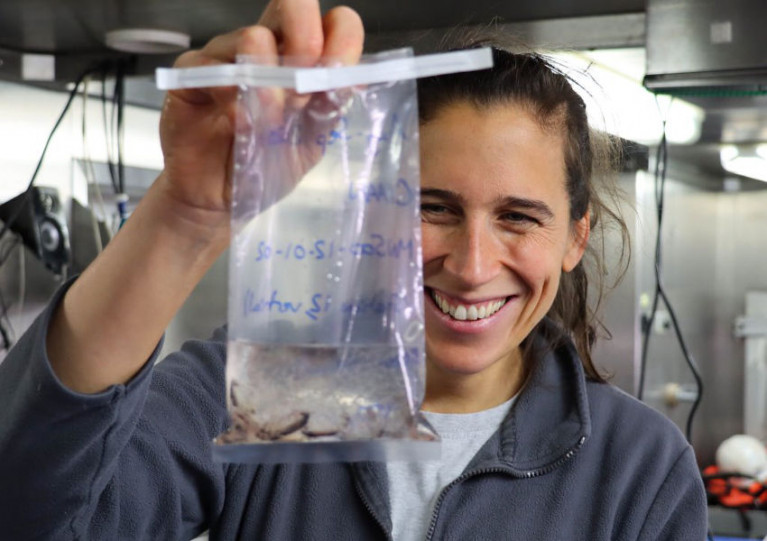An Irish-led team of marine scientists on board the RV Celtic Explorer returns to Galway Harbour today (Wednesday 16 September) after more than three weeks investigating historic climate change in the Arctic region.
Scientists from NUI Galway, University of Southampton, University of Bremen and Bergen University had been capturing data in the Nordic and Greenland Seas as part of the CIAAN survey (Constraining the Impact of Arctic Amplification in the Nordic Sea: A biogeochemical approach).
This survey aims to provide new insight into how essential climate variables are recorded in geologic archives.
Assessing the impact and magnitude of past (pre-industrial) climate changes is critical to further our understanding of how the climate system will respond to a rapidly changing Arctic ecosystem, the scientists explain.
‘One of the key challenges in climate change science is assessing the magnitude of future climate change’
Lead scientist Dr Audrey Morley, from the School of Geography and Archaeology at NUI Galway, says: “One of the key challenges in climate change science is assessing the magnitude of future climate change, due to our short observational records which are limited to the past 150 years.
“Our research is unique, as we are not only observing modern essential climate variables, but we will also look into the past to assess how essential climate variables have evolved since before pre-industrial conditions.
“This long-term perspective is crucial and will help us to better understand our environment and the environmental consequences of human activities.”
Dr Morley notes that the Arctic is an especially sensitive and vulnerable environment with regards to contemporary climate change.
“The North Atlantic and Nordic Seas are a key region for the formation of North Atlantic deepwater and the uptake of atmospheric carbon dioxide. Whether or not this region will remain a carbon sink during rapidly warming climates is a question that remains to be answered,” she says.
As part of this research survey, the RV Celtic Explorer travelled to 79 degrees north in the Greenland Sea, which is the highest latitude reached by the marine research vessel.
‘The RV Celtic Explorer is crucial to facilitate this type of international research’
In order to operate in the Arctic region, the RV Celtic Explorer was required to obtain a Polar Code Certification — becoming the first Irish vessel to achieve this status, which greatly increases its ocean research capabilities.
“The RV Celtic Explorer is crucial to facilitate this type of international research,” says Marine Institute chief executive Dr Paul Connolly.
“This research in the Arctic region will deepen our knowledge of the region and will improve models that can forecast changes to our oceans and climate. This will inform effective policy and management decisions to meet the challenges posed by climate change.”
































































